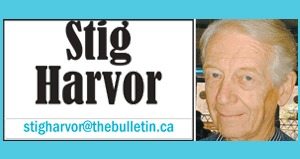Stig Harvor —
The annual budgets of cities are important public issues. They determine the quality of life of all residents, both rich and poor. Yet what does anyone of us really know about Toronto’s new 2014 operating budget of all of $9.6 billion (yes, $9600 million!), approved by city council on January 30? The media failed to properly report on it. Last year by contrast, the public, councillors and the media were all actively engaged in vigourous and often contentious debate about the third annual budget of the Ford administration.
What then has changed? One simple answer is the increasing revelations of seemingly endless and outrageous public and personal behaviour by our mayor, Rob Ford. For the past year, the media and all of us have become fixated on the next incredible and humiliating episode in his life. His infamy has spread across the world. He has made Toronto-the-Good into Toronto-the-Bizarre; a laughing stock and butt of jokes. Ford appears to revel in the notion that any publicity is good publicity. He loves being a “celebrity.” He equates public attention with public approval.
An exasperated city council has finally reduced Ford’s powers to that of half- or quarter-mayor. His ambitious and aggressive older brother, rookie Etobicoke councillor Doug, is still by his side. Doug just recently announced he himself will not seek re-election. He will act as Rob’s election campaign manager. It seems Rob needs help.
True to form, Rob again denounced the budget approved by his own appointed executive committee. He insisted the property tax be held at his preconceived, arbitrary idea of 1.75%. He ignored the 0.5% hike phased in over the next 30 years to pay for his beloved Scarborough subway, replacing the less-expensive LRT already approved and fully funded by the province. He insisted on budget cuts totalling an imaginary $60 million while also wanting a 10% cut in the land transfer tax. Arithmetic and facts are not his strong suit—as in his other claim he has saved the city $1 billion.
Councillors managed to prevent budget cuts in many services deemed important by the public. After more than 50 motions with many former Ford allies abandoning him, the budget was finally approved at 2.71% in a 35-9 vote. It means Torontonians still have the lowest residential property tax in the Greater Toronto Area (GTA). They pay $1,100 less than the average GTA owner.
City Manager Joe Penachetti warned all savings and administrative efficiencies have already been implemented by council in the last decade. Future tax hikes will have to exceed inflation. Present levels of city staff are unable to respond to the public demand for proper service. Some 2,500 unfilled city positions, particularly in crucial planning, health and information technology, will have to be refilled.
When city staff are overloaded, the public becomes frustrated and complaints pile up. Perversely, this plays into the welcoming hands of politicians like the Brothers Ford who want to privatize all city services not nailed down, as they put it.
The pitiful Ford psychodrama is seriously interfering with public and media focus on the many basic issues facing our city. One is affordable housing. Toronto’s growing social housing waiting list is now equal to the population of Oshawa. As also expressed in the recent 2013 Toronto book, >Some Great Idea> by Edward Keenan: “The most livable parts of the city need to become more affordable and the most affordable neighbourhoods more livable.”
Another burning issue is public transit. Part of it is the future of the aging and slowly crumbling Gardiner Expressway. This includes the present study of its eastern portion from Jarvis St. to the Don Valley Parkway (www.gardinereast.ca). And then there is the current controversy about accommodating jets on an expanded waterfront Toronto Island Airport (www.communityair.org & www.nojetsto.ca).
We have already entered the political campaign of the Oct. 27 city election. Unless Rob Ford self destructs before then, the election is our only real chance to rid our city of four years of mismanagement, upheaval and ridicule. With the help of hopefully more supporting provincial and federal governments, we can then set out on the ever-challenging task of building a truly better city for all of us.
 TheBulletin.ca Journal of Downtown Toronto
TheBulletin.ca Journal of Downtown Toronto

